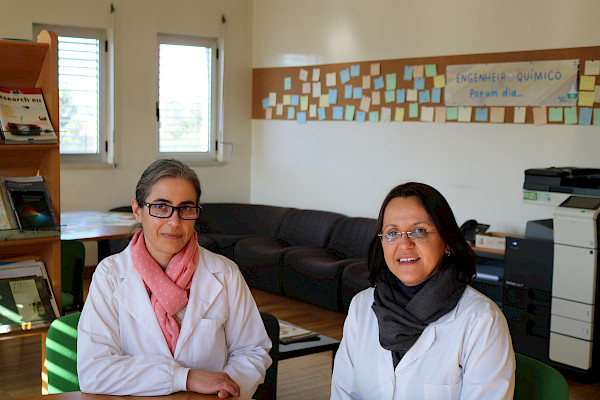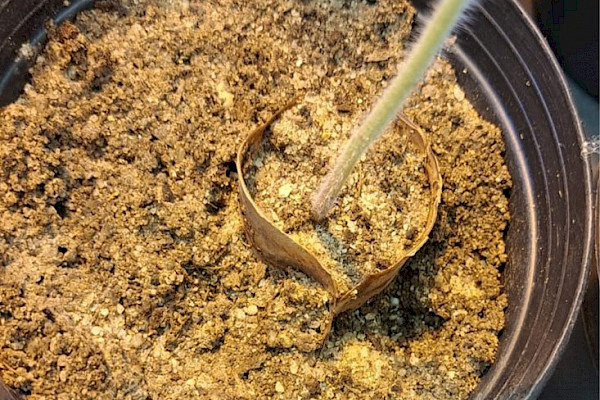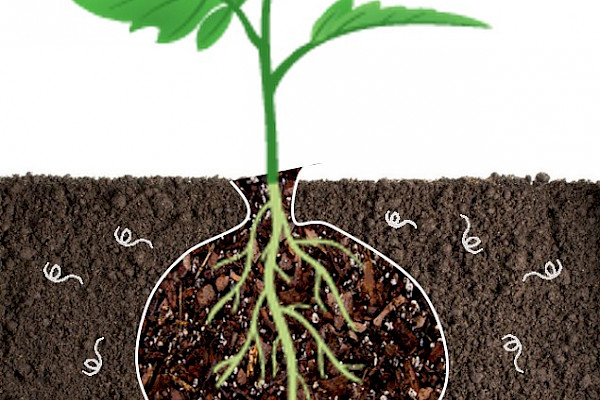University of Coimbra creates biodegradable protective bag to manage plant parasitic nematodes
The research tem is developing biodegradable films made from recycled paper, biodegradable polymers and biological nematocides
English version: Diana Taborda
A group of researchers of the Faculty of Sciences and Technology of the University of Coimbra (FCTUC) is developing biodegradable films made from recycled paper, biodegradable polymers and biological nematocides, in the shape of a bag, intended to protect the root system of plants from the attack of root-knot nematodes (plant parasites that negatively affect agricultural production) during transplantation.
This innovative, sustainable, practical and low-cost management strategy is still being optimised, but the results obtained are promising. Developed under the project "ProBag - Plant Protection Bag: a new, practical and sustainable system for plant-parasitic nematodes management in conventional and family farming", ProBag was one of the winners of the the UC funding programme “Seed Projects for Interdisciplinary Scientific Research”.
“We tried to come up with a sustainable management strategy, because the relatively effective ones currently available use the chemical pesticides called nematocides, most of which have a negative impact on both the environment and human health”, explains Carla Maleita, researcher at the Chemical Process Engineering and Forest Products Research Centre (CIEPQPF-FCTUC).
The researchers combined the recycling of paper with the use of biodegradable polymers and a bionematocide, obtained from the waste of walnut fruit processing, thus resulting in a biodegradable product, i.e., with no negative impact on the environment. The ProBag will be used during plant transplants, and it is expected that the release of the compound will occur both inside and outside the bag.
“This will at first work as a kind of barrier to parasites, but as soon as the bionematocide is released, it begins to act on the organisms, causing their death and thus protecting the roots", describes Carla Maleita, adding that "at the end of the cultivation, this product will have been totally or mostly degraded by non-target soil organisms and physical factors, namely temperature and humidity”.
"We have already done a preliminary test and concluded that the bags' degradation needs to be optimised. However, there was no reproduction of nematodes in any of the plants. Therefore, the results are promising. One of the next steps is to assess the impact of ProBag on non-target soil organisms, such as earthworms, and how they contribute to bag degradation", Maleita says.



